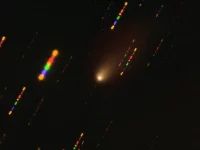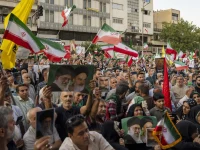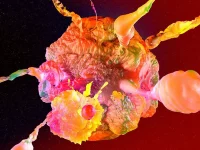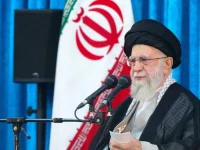Long story. Cocaine Cowgirl by Jennie Erin Smith. Part 3/12.

COLUMBIA. The life and violent times of Griselda Blanco, Pablo Escobar’s feared rival and the most notorious, murderous queen-pin of the Colombian drug wars. (part 3/12)
»A Big Ass Heart’
Officiais in Miami figured that Griselda would be killed almost instantly upon her return to Co lombia. The thought didn’t bother them mu ch. They had reason to believe her old enemies might do to her what they couldn’t. Pa po Mejia, Griselda’s onetime collaborator in Miami and eventual bayonet victim, had been deported to Co lombia a few yearsearlier.
In 2000. Uber, the most businesslike and least volatile of Griselda’s sons, was shot to dea th while leaving an El Poblado gymnasium. The murder was a complete surprise, and Griselda blamed Mejia, who by sorne accounts had been Uber’s own godfather. According to Popeye, Mejia had in fact been very, very eager to kill Griselda as well, and was working out plans to do so before she arrived. But then, Popeye said, Mejia was killed in a car accident. Other formedy devotedenemies of Griselda’s, Pablo Escobar among them, were long de ad. Chucho Castro. the father of the little boy killed by Ayala in Miami. was back in Medellin as well but,luckily for Griselda, had lost his taste for revenge and merely kept hisdistance.
Griselda’s good fortunes also had to do with the fact that the city itself was changing, civilizing after generations’ worth of conflict and madness. Escobar’s 1993 death marked the end of Medellin’s darkest era, but gangs, guerrillas, and paramilitary factions fought over the city for another decade.
When the government responded with military takeovers of the city’s poorest and most lawless neighborhoods. a forwardlooking mayor saw that these were followed up by costly and ambitious improvements. By 2004, when Griselda returned after almost twenty years in prison, cable cars connected previously impassable, favela-like slums to the city’s modern metro system. The city’s most famous artist. Fernando Botero, had donated dozens of his oversize bronze sculptures to create a delightful downtown plaza of chubby dogs and cats and human nudes. Sorne of the first of his sculptures to arrive were damaged by bombs, but Botero provided replacements and eventually the bombings ceased.
Giant public libraries saon stood out from Medellin’s hillsides, and its night sky lit up with new sports complexes and soccer fields. Medellin’s murder rate dropped by twothirds in five years. Drug profits cycled into real esta te had left the city with glittering shopping malls, condominiums, redbrick suburban developments, and beautifully restored country ranches. Expatriate professionals returned from New York and Florida. El Poblado, with its sleek high-rises and landscaped, hermetic quiet, came to look and feellike one of the better districts of Miami or Fort Lauderdale.
Griselda received only a few hours’ notice before being deported. Al ways anxious to look pulled together, she begged her Floridajailers t o let her buy something decent to wear, but they refused. She landed in Bogota in a T-shirt from 7- Eleven and scrambled desperately through the a irport insearch of an outfit.
She returned to Medellin to find Dixon, her eldest, locked away by his wife in a rehabilitation clinic. The severity of hiscocaïne addiction came as a surprise to her. Since she could not stay with Dixon, she stayed with friends, and with her one surviving sister, for nearly a year. By then her wealth from the 1970s and 1980s was long lost to wars and lawyers and frozen Panamanian bank accounts. But Griselda retained her old properties, and by renting sorne and selling others she was able to purchase the large El Poblado home that would be hers until her death.
Dixon’s health worsened steadily. His drug habit became all-consuming, and his wife eventually left him. He wasthickset, like his mother, and had developed diabetes and hypertension, which resulted in a stroke. His personality leaned toward depressive and brooding, giving over occasionally to bursts of violence, and his stroke exacerbated these tendencies. Griselda moved him in with her in ElPoblado.
The ho use, up on a hill, had a glorious view of the cit y. From its deck, Griselda could see Barrio Antioquia and the From its deck, Griselda could see Barrio Antioquia and the runway of the Olaya Herrera airport. The gardener and the maids called her Dofia Gris. Among strangers, she calledherself Martha.
Local press left Griselda alone, and she might have spent the rest of her life in relative obscurity were it not for the 2006 documentary Cocaïne Cowboys, in which several former Miami cops and criminals remembered Griselda as a hypochondriac, a lesbian, « a bad freebase user, » and a sadistic, indiscriminate killer. « She should have been dead a long time before her time, » recalled the ex-trafficker Jon Roberts. From prison, a salt-and-pepper-haired Alaya recounted his most sensational hits for « the lady, » as he called her. In one interview, the former Miami homicide detective Nelson Andreu blamed Griselda for « the majority of the homicides that had occurred in South Florida during those days. » It was an unsupportable daim, considering that in the first years of the 1980s Miami averaged about six hundred murders annually. Police had credited Griselda’s group with only about forty in all, though hearsay would later bring the tally to more than two hundred.
A follow-up film, Cocaïne Cowboys 2, inflated Griselda’s legend even further, thanks to Charles Cosby, a former smalltime crack dealer who took it upon himself to seduce Griselda, sorne twenty-five years his senior, while she was in federal prison in California. If Cosby’s account is to be believed, Griselda was highly unrepentant and at least marginally still involved in the cocaïne tracte during her incarceration in the early 19905. Cosby showered Griselda with cards and letters, visited her often, and looked after young Michael; they managed to consummate their relationship, every so often, by paying guards to let them sneak off. Griselda signed her letters to Cosby « y our wife, » or « y our woman, » and repaid him with the outsize generosity she’d always shown her close friends. « The Godmother had a big ass heart, » Cosby recalled to J’Adore magazine. « She would give you her last $1 and the coat off her back. » Griselda’s sons supplied Cosby with highgrade cocaïne to sell, making him rich.
When their romance finally ended, Griselda nearly had Cosby killed, using her adolescent son, Michael, to help set him up for an am bush. Cosby escaped with minor wounds and even managed to make up with Griselda, unitil he turned state’s witness in Florida. Griselda, according to Cosby, had revealed to him a plot to kidnap John F. Kennedy Jr. and hold him hostage un til she was flown to Colombia and relieved of her homicide charges. The kidnapping plot was never proven, but absurd stunts were not out of character for Griselda. In October 1980, when the DEA hadjust discerned that she was living in Miami, she had attempted to fake her own dea th, shipping a casket back to Medellin. DEA agents and local police swarmed the Olaya Herrera airport, only to find thecasket filled with plumbing supplies.
The Cocaïne Cowboys films also brought sudden attention to Michael Blanco, who until then had been living quietly in Miami. Hip-hop magazines sought interviews with the real-life son of « The Queen of Cocaïne. » Michael’s good friend Christian Rios encouraged Michael to embrace his family’s notoriety. Suddenly his old middle name reappeared, and « Michael Corleone Blanco, » who had always loved music, capitalized on his family’s notoriety to start a hip-hop record label he called Xtortion. Michael himself recorded a song titled « Cocaine Nowboys. » For a briefwhile, the label’s artists included « Pablo Escobar Jr., » the fraudster from New Jersey. Xtortion Records, in the end, was not a success., but offers from filmmakers were already co ming in. With his mother now safely in Colombia, immune from further prosecutionunder the terms of her plea bargain, Michael and Rios be gan to consider the sale of her life rights.
Jared Valentine, a young Canadian filmmaker, became the first to approach Michael for the rights to his mother’s story, for use in a feature film and possibly a documentary. In 2009, Valentine, along with a crew from Vice magazine, arrived in Medellin to interview Griselda in her El Poblado home. Christian Rios came with them. Michael Blanco did not.
Michael had not visited his mother in persan since her deportation; sorne friends of his say that immigration issues kept him from traveling, though he had gone back and forth to Colombia during his mother’s imprisonment. Griselda had never given a media interview in her life. She claimed that she was doing it principally to counter the account of her life perpetuated by Charles Cosby- or « that black guy, » as she referred to him. She also conceded that she was short on cash, and persuaded Valentine to buy her a new TV and dishwasher.
Valentine allowed me to watch the footage. At sixty-six, Griselda looked a bit jowly- she had resisted t he Colombian temptation toward facial surgery, it appeared- a nd thick in the middle. She was elegant nonetheless, appearing before the camera in a high-backed upholstered chair, coiffed and made up, in a succession of carefully chosen outfits: pantsuits with flower pins, embroidered blouses, strappy sandals, and tasteful jewelry. She spoke gracefully and deliberately in a medium-toned, slightly scratchy voice, without a ny trace of the lisp or stutter she was long reputed to have had.
She did not, in the course of sorne ten hours of filming over several da ys, admit openly to even one murder. All the killings attributed to her- including the three she’d pleaded guilty to- had been carried out by her husbands or their soldiers, she said. If her men killed, thinking they were doing her a favor, it was because they misunderstood ber. She had never given a direct order to kill, she claimed, even to Ayala.
The only murder she came close to acknowledging, however obliquely, was that of Michael’s father. « I guess I didn’t love him so much, » she said of him at one point, smirking very slightly.
Griselda kept her gaze fixed firmly on sorne high corner of the room while she spoke. Her eyes gave away nothing, nordid she once lose her composure. But sometimes after telling a whopper- Chucho Castro had held up his toddler son as a human shield, she asserted at one point- she would run her tangue slowly along her top teeth.
She loosened up when the conversation turned to her family and friends. She showed the film crew her old photo albums, sorne ofwhich she’d knitted lacy covers for, documenting all the births, weddings, quinceafteras. It didn’t seem to faze her that a high proportion of the albums’ subjects had met violent ends, sorne for merely being related to her. « Look how thinI was, » she’d say, again and again, as she turned the pages. She made the film crew elabora te lunches and set a fancy table for them.
For one day of filming, the crew left Griselda’s home to accompany her to Barrio Antioquia. Even just talking about the barrio in the backseat of the car, her face lit up- Griselda had a wide,joker-like smile. « It’s a tough neighborhood, » she told the group, beaming, as they rolled in. « Very, very tough. »
But everyone knew her there, she said, and she never had any problems. She visited the barrio every single day, she said. Sometimes for only half an hour, but she never missed a day. The film crew followed Griselda as she descended regally from their SUV, dressed in a white pantsuit and black silk blouse, wearing heavy gold hoop earrings and a flowershaped cocktail ring made of sapphires and diamonds. She greeted a stringy-haired woman in sweatpants, selling bananas out of a cramped storefront. ‘Y ou look like you’ve lost weight, » the woman told Griselda, and they hugged warmly.
Griselda explained that the people of Barrio Antioquia were very special to her. They had written to her throughout her imprisonment; many of them had also done time in the United States for drug crimes. They were humble, noble people, Griselda said, and not snitches. A snitch was the lowest t hing one could ever be. according to the mores of Barrio Antioquia, and one of the few English words Gris el daliked to deploy. She pronounced it « ezneet. »
La ter, in Griselda’s home, Valentine asked if she feared for her life, running around Medellin the way she did, without guns or guards. »There are always people saying stupid things, » Griselda answered. « And people who believe them, and might take reprisais. You always feel fear. » But she had never feared death itself, she said. ‘1 don’t know ifit’s because of this mentality that l’ve survived. » She sighed heavily. « 1 al ways ask Gad not to send me to hell, because it’s hot there, » she said, and laughed a little.
The payments Valentine’s company made to Griselda were modest. A year orso later, Rios, Michael, and Griselda began negotiating secretly with a movie producer who was offering more money for Griselda’s life rights, and terminated their relationship with Valentine-prematurely anddeceptively, according to Valentine. « Dealing with these people is like Kabuki theater, » he told me.
In May 2011, Michael and his mother signed a new deal with First Born Films, a Los Angeles production company. Valentine retained the rights to make a documentary with his footage, if he cha oses to, but this wasn’t what he had intended. « We are patiently waiting for [First Born) to make their movie, hoping they are super successful, so we can sue them for everything t hey earn, » Evan Haines, Valentine’s business partner, told me.
Within days of signing the new deal, Michael was arrested, in a Miami Beach Dunkin’ Donuts, on two felony counts of cocaïne trafficking and conspiracy to t raffic in cocaïne. Police said he was trying to bu y five kilos for sorne hip-hop artists he knew, offering as payment a motorcycle, $10,000 cash, and a diamond pendant necklace inscribed with the phrase KILL ALL RATS.
Two months after Griselda’s murder, I met Blanca, a woman who had been hired by Griselda to care for Dixon. When Blanca arrived in the household, Dixon was locked in his room most of the time. Dixon’s habit cast him between $100 and $200 a day. He never had to leave the house to bu y it, because a man came by motorcycle to deliver it. Griselda was spending her days outside the house, in Barrio Antioquia with Carmen and her family.
At the time she was hired, Blanca had only a vague sense of who Griselda Blanco was. « Lat er I read on the internet all of the horrible, beastly things she did and I thought, ‘Oh my Gad, I lived with her eight months!’ That was the brutal way she managed her business in the United States. I read about the mall killing- horrible. A war for power over the cocaïne market. »
But Dona Gris, as Blanca called her, « was really generous. She shared everything. At her house I never had to buy shampoo, soap, any personal item- every time she went shopping she bought them for me. I would tell her I had them already and she’d buy me them anyway. »
It seemed obvious to Blanca that Griselda was no longer in the cocaïne business. « Look, a persan involved in drugs with lots of business is busy. The phone is always ringing, and they have three or five phones. She was totally quiet. Of course, one never knows. But when she started her life here again, she wasn’t so connected. Things had changed. She hadto live on the rents from her properties. »
There were a number of things you could never talk about with Griselda, Blanca said. Y ou could never mention her oast. especiallv not Miami. You couldn’t bring uo hersons who had been killed. « The deaths ot hersons were the hardest thing she had ever experienced in her life. »
Griselda remained very close with her two living sons, Blanca said. She talked to Michael daily. She was very affectionate with Dixon, always giving him hugs and kisses, and constantly worried about him. Griselda could not control his drug use, Blanca said, but wanted Blanca to watch his diet. The only time Blanca ever saw Griselda angry, she said, was when Dixon was acting erratic after freebasing. « She had to get mad and try and calm hlm down, » she said.
Blanca said she knew Griselda had been a freebase cocaine user herself once but saw no evidence that she still was. José Guarnizo learned from Griselda’s hairdresser, who was also her frequent confesser, that Griselda had celebrated her sixty-eighth birthday with a little basuco. She immediately regretted it.
« She really wasn’t well enough to use drugs, » Blanca said. « She barely even drank. She had been hospitalized here many times for her colon. She had inflammation. I thought it might be cancer, but she didn’t t alk aboutit. She was in a lot of pain and visited a lot of doctors. »
Griselda’s relationship with Carmen was something Blanca could never quite figure out. They had told Blanca that they had met after Griselda’s deportation, but others assured me that the friendship between Carmen and Griselda dated back to their childhoods. Richard Smitten’s book describes a secretive Colombian woman of the same name, living in New York. whom the DEA had investigated fruitlessly in the 1970s. The investigators were surprised, Smitten wrote, when she showed up at Griselda’s New York trial a decade lat er. That Carmen had taken care of Michael in the earl y years of Griselda’s imprisonment. She had be en arrested in 1992 on drug conspiracy charges, sentenced to ten years in prison, and in the la te 1990s found herself in the same penitentiary as Griselda. I believed, but would never know for sure, that this was the same Carmen I had seen in Barrio Antioquia.
‘They had the drug business in common, » Blanca remembered. « Not that Carmen was so important as Griselda, but they both had a history in the drug business. » Griselda doted on her extended family and was in touch with them often. She was a godmother many times over, and maintained warm relations with dozens of cousins and nieces and nephews. The bulk of Griselda’s disposable incarne, though, went to Carmen and her family. « She s.pent a lot ongroceries, $500 or even more every week, » Blanca said. « 1 was amazed by that. Most of it was for them. And she brought them over food every day. »
When Griselda was away at Carmen’ s. Blanca was alone a lot with Dixon, who was usually locked in his room. She wentfor long walks, up and dawn t he hills, to kill t ime. She talked to anyone she could find- the gardener, the guards. She understood wh y Griselda spent so mu ch of her time away from home. even in a place like Barrio Antioquia.
Sorne evenings, while Blanca sat with him in the ki tchen, Dixon would open up to her, and she felt the depth of his misery. « He told me he wanted to die, » she said. « He said it was because of t he things he had do ne. 1 told him th at Gad would forgive him, if he asked. He told me he didn’t believe in Gad, and that was that. »
One afternoon, Blanca set Dixon off suddenly by handing him the phone when he didn’t want to take the call. He threatened her with a hamm er, compelling her to hi de in the bathroom, and banged on the locked door with it while she called Griselda from a cell phone. Days later, he tried to choke Griselda. Griselda forced Dixon into a long-term rehabilitation program, where he lasted only a few weeks. Griselda asked Blanca to come back to the bouse, but Blanca felt she couldn’t. She kept in touch with Griselda up until her dea th, and still had fond feelings for Dixon, despite everything. « He could really scare me during his times of madness. I was scared of him, but normally I liked him and generally felt comfortable with him, with both of them, » she said.
Blanca still wore a diamond ring that Griselda had given her. She’d never tried to sell it, even when she was out of work. It was her way of remembering Do fia Gris, she said.
(End of part 3/12 To be continued)










